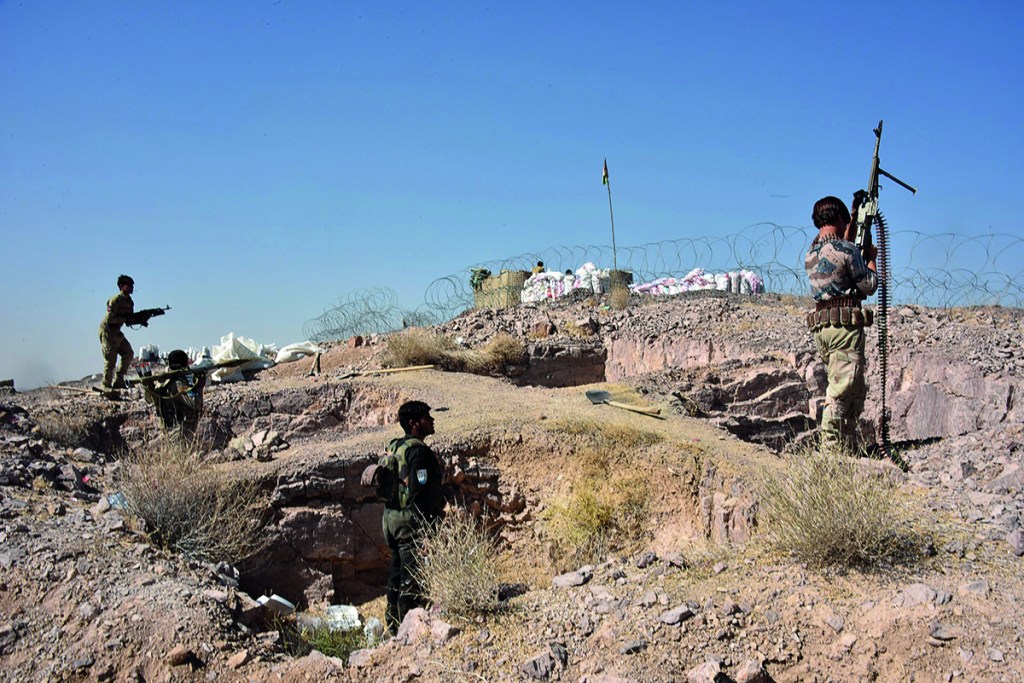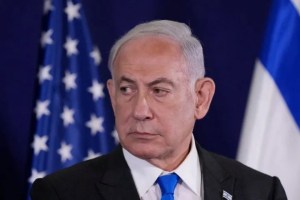I’ve been to the front line in Iraq, Syria and Libya and witnessed all kinds of crazy, unlikely events. But I have never seen anything like what’s happening in Kabul. Only two weeks ago, I was reporting for CNN in the city of Kandahar. It was clear that this provincial capital would not be the last to fall. Then on Sunday morning, we heard that the Taliban were at the gates of Kabul itself. In the afternoon, we heard that they had entered the city. By the evening, Taliban fighters were manning checkpoints on every street corner, wielding guns but not using them. How on earth did they take a capital city of six million in a matter of hours while hardly firing a shot? The Afghan army was never a coherent force in the way that the Taliban is. I saw this for myself a few days ago on my way to Taliban territory in Ghazni. Afghan soldiers ran out of their checkpoint, hailed down a civilian car, jumped in and drove off, abandoning their post. When I returned the next day, new soldiers were manning the checkpoint, but they were dressed in civilian clothing. The Afghan army didn’t have either the kit or the appetite for a real fight.
It wasn’t just Joe Biden who was astonished by the Taliban’s rapid success. I’ve spoken to Taliban fighters who say that even they have been amazed. When I reported on CNN last week that US security officials thought Kabul might be surrounded in 30 days, I thought this was a vast exaggeration. I don’t know anyone who didn’t think the same. So yes, we absolutely should ask how US security services got this so wrong. But we should remember that even the Taliban were shocked at just how easy it has been for them.
At the start of the week the streets of Kabul were eerily quiet. People walked around in a daze, struggling to come to terms with what had just happened. But the real story was about the people not on the streets because they were hiding, too afraid to go out of their homes. I still get messages from them every day: ‘Please help me get out’; ‘Where can I go?’; ‘How can I explain my paperwork?’ It’s heartbreaking to see how many lives are hanging in the balance, with no clear rescue at hand. So far, the Taliban have been cordial and even welcoming. They have said that we foreign correspondents are free to continue doing our work unimpeded. Afghan journalists, who have done such brave and important work over the past 20 years, are not getting those kinds of assurances. I’m not worried for my safety, but I am very worried for theirs.
Beauty salons have sprung up in Kabul in recent years. Their owners now seem understandably nervous. Adverts featuring uncovered women have been painted over, not because of Taliban orders, but because people fear what might happen next. I was walking with a Taliban soldier on Monday and passed a man smoking a cigarette on the street. I asked: ‘Will that be okay now? Will you let people smoke? Will men have to grow their beards?’ ‘It’s all fine,’ he replied. ‘Sharia law will be implemented only gradually.’ The Taliban leaders say they’ve changed from the 1990s, learnt from their mistakes and want to be part of the international community. But from spending time with Taliban troops on the streets (as opposed to the higher echelons in Doha), it’s clear their fundamentalism hasn’t changed at all. I first interviewed some of their members two years ago and ended up walking behind one of the men, such was the protocol. I went away thinking that two decades of war has done nothing to weaken the Taliban’s resolve or their ideology.
In all the war zones I’ve visited I have confronted the same glaring reality: enemies are rarely bombed into submission. Military force often hardens their values, rather than changing them. Even when one group of enemies is dismantled or destroyed, the seeds are often sown for a new generation of hatred and violence. That doesn’t mean some wars are not worth fighting, but goals need to be specific and we need to be realistic about how parts of the world see America. Afghanistan offers a case study in the futility of conflict, perhaps the clearest such example since Vietnam. The Taliban are aware that the world is watching and that the first days of their return to Kabul will be an important moment to get right. It suits them to put up a facade, to be accommodating and even moderate. But how long this will last is anybody’s guess.
Clarissa Ward is chief international correspondent for CNN. Her memoir, On All Fronts, is published by Penguin. This article was originally published in The Spectator’s UK magazine. Subscribe to the World edition here.


















